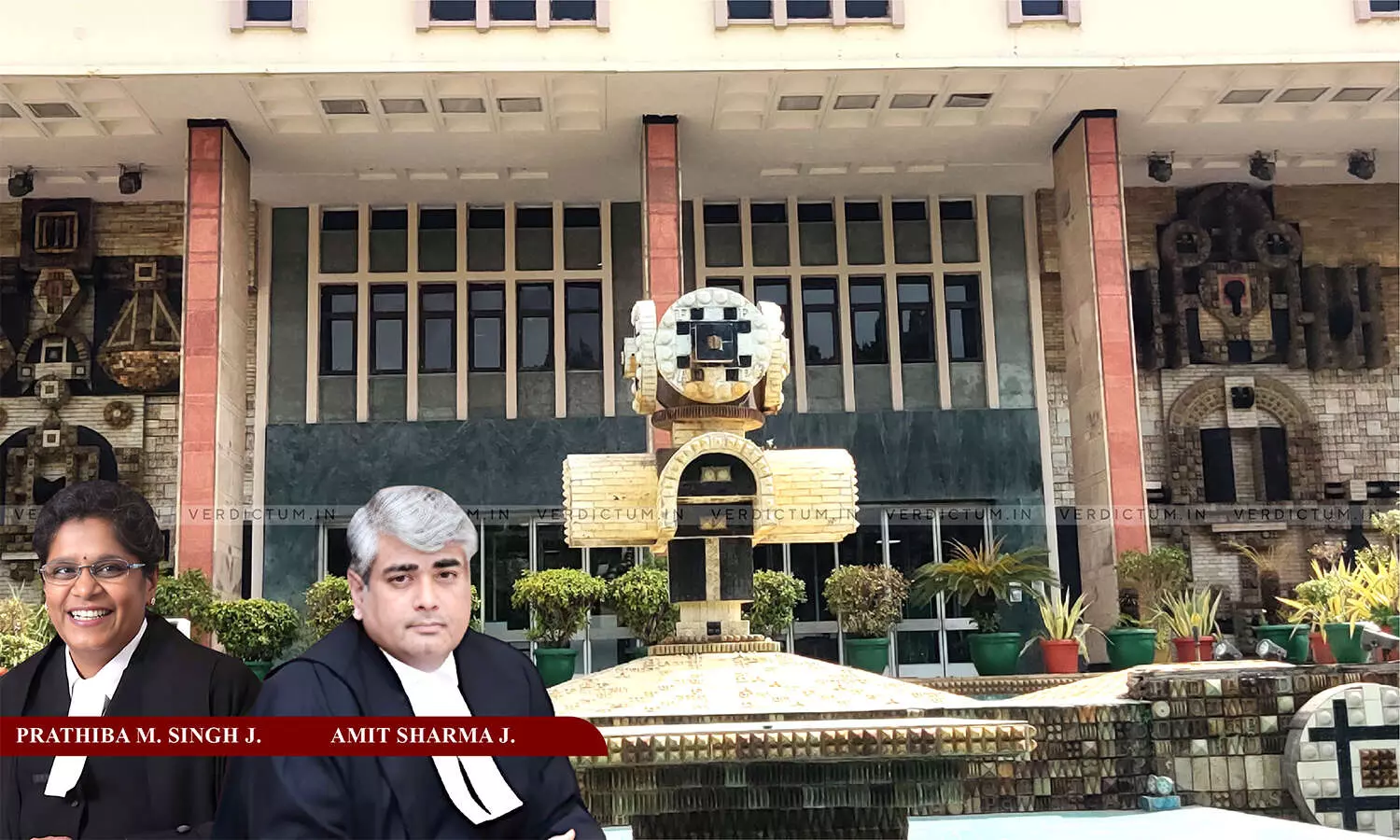
Justice Prathiba M. Singh, Justice Amit Sharma, Delhi High Court
Arrest Not Mandatory For Specimen Signatures: Delhi HC Upholds Constitutional Validity Of Proviso To Section 311A CrPC
 |
|The Delhi High Court upheld the constitutional validity of the proviso to Section 311A of the Code of Criminal Procedure (CrPC), which authorizes magistrates to order individuals to provide specimen signatures to assist in criminal investigations.
This decision arose from a reference made by a magistrate seeking the High Court's opinion on whether a person appearing voluntarily before a court to provide specimen signatures under Section 311A must be arrested beforehand or at any point during the process. Additionally, the magistrate sought clarification on whether the provision placed excessive restrictions on the fundamental rights of the individual ordered to provide such signatures.
A Bench comprising Justice Prathiba M Singh and Justice Amit Sharma reviewed the matter and concluded that the proviso to Section 311A is directory in nature, not mandatory. The Court said, "The word ‘shall’ used in the aforesaid proviso, if is in interpreted to be a mandatory provision, then the consequences...is that the concerned accused person has to be mandatorily arrested before he can give his specimen signatures or handwriting in aid of the investigation. It is well settled principle of law that arrest of an accused, even in a case involving non-bailable offences, is not mandatory. The need to arrest an accused person in such cases is left to the discretion of the concerned Investigating Officer or his superiors."
The Court further clarified, “When a person voluntarily appears before the Court or Magistrate, pursuant to the application filed by the Investigating Officer, for giving specimen signature or handwriting, it is not essential to arrest him."
This interpretation aligns with the provisions in the newly introduced law—the Bharatiya Nagarika Suraksha Sanhita (BNSS)—which echoes the same principle. The relevant provision in the BNSS states that a magistrate may, for reasons recorded in writing, order a person to provide a specimen or sample without the need for arrest.
The Court's judgment emphasized that, in this case, the legal provision should not be understood as imposing an automatic requirement for arrest, particularly when the individual voluntarily complies with the request to provide a specimen signature.
Cause Title: Court On Its Own Motion v. State, [2024:DHC:9930-DB]
Appearance:
Petitioner: Senior Advocate Puneet Mittal, who acted as Amicus Curiae, along with Advocates Rupendra Pratap Singh, Sakshi Mendiratta, and Sameer Vats
Respondent: Assistant Standing Counsel (Criminal) Nandita Rao, with Advocates Amit Peswani, Anurag Ahluwalia, and Tarveen Singh Nanda